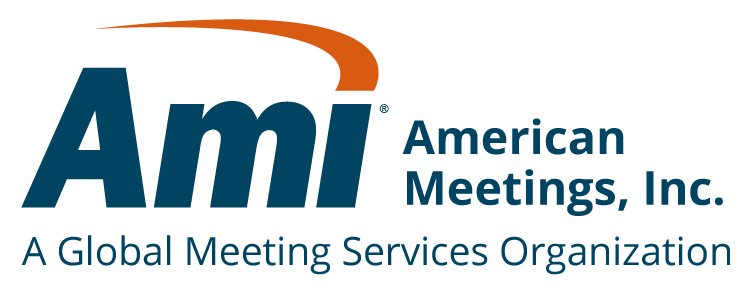
Key Standards and Diversity & Inclusion Considerations for Your Next Pharma, Healthcare, or Biotech Meeting
Navigating Essential Standards and Diversity & Inclusion Guidelines in Pharma, Healthcare, and Biotech
In 2024, event organizers in the Pharma, Healthcare, and Biotech sectors must understand the importance of standards and diversity and inclusion considerations for their events – and even more crucially, they must know how to apply the rules and guidance. With 27% of Americans having a disability, whether physical, cognitive, sensory, or another condition, it’s vital that you’re up to speed with the latest accessibility guidance for events and meetings in these industries.
But navigating healthcare standards and diversity and inclusion for meetings can feel overwhelming – particularly if prioritizing these concerns for the first time. The good news is that once you have familiarized yourself with the regulations and expectations around accessibility, diversity, and inclusion, it’ll soon become second nature to build it into your plans.
Below, we’ll explore some of the most important considerations for your next meeting, ensuring it’s accessible, safe, and enjoyable for all.
Ensuring Accessibility: Accommodating Disabilities in Your Meeting
Regardless of your audience, it’s vital that you consider accessibility regulations, such as the Americans with Disabilities Act (ADA), to keep attendees safe and feeling welcome in your event space.
Anyone organizing an event or meeting should refer to the ADA website for comprehensive guidance. As a high-level overview, areas you’ll need to consider include:
- Making accessibility aids available, such as closed captioning, sign language interpreters, and assistive listening devices
- Selecting venues that are accessible for attendees with mobility limitations, such as those with wheelchair ramps, elevators, handrails, and accessible restrooms
- Providing quiet spaces for attendees who may experience sensory sensitivity to allow them to take a breather in a calm environment
- Including trigger warnings for especially sensitive topics (when in doubt, it’s best to err on the side of caution)
- Complying with ADA regulations to ensure equal access and opportunities for attendees with all disabilities
Want to learn more about accommodating disabilities at your next event? Check out this blog post for a deeper dive.
Ethical Standards: Avoiding Conflicts of Interest
While it may not initially seem like a matter of inclusivity, avoiding conflicts of interest is very important when you’re looking to maintain a diverse, inclusive meeting environment.
Ethical meeting organizers should disclose any speaker relationships with vendors or hosts to mitigate bias concerns. For instance, if a speaker has a financial interest in the topic they’re speaking about, or a presenter works closely with the host organization outside the public eye, it is best to declare this upfront.
Organizers should also make it clear that overt marketing or promotion of products and services during educational sessions is strongly discouraged. If your audience is there to learn, they won’t appreciate being sold to.
Finally, avoid offering excessive compensation or gifts to attendees (or speakers) that could be seen as inducements. A gift bag containing some branded merchandise is likely to be acceptable, but offering $1,000 gifts to attendees is a very different matter. In industries such as pharmaceuticals, this also applies to hospitality in the form of HCP meal caps.
Safety Measures: Planning for Emergencies
For any event or meeting, the safety of attendees, speakers, and staff must come first. You may think that this is the sole responsibility of the venue, but everyone should know what to do in an emergency.
Familiarize yourself with the location of emergency equipment, such as AEDs and first aid kits, and ensure you know who the venue’s first aid and fire personnel are and how you can contact them in an emergency. If possible, consider having medical personnel, such as a doctor, nurse, or EMT on site – particularly for large, busy events.
You should also establish evacuation routes and communication plans for various emergency scenarios, and ensure all event staff are familiar and comfortable with them. At the start of your event, don’t forget to point out emergency exits and assembly points and tell attendees what to do in an emergency.
Health and Wellness: Supporting Inclusive Meeting Practices
Looking after the health and well-being of your attendees is essential for any inclusive meeting. Many event organizers don’t go beyond taking dietary requirements, but there’s plenty more you can do to ensure you’re creating an inclusive environment for all attendees.
Offering healthy meals and snacks, which adhere to allergy and dietary requirements, should be a given for any event. That usually means collecting requirements in advance and liaising with the caterers to ensure a suitable menu can be created and to eliminate any risk of cross-contamination. You should also keep a list of all key allergens in each dish to ensure everyone can consume their meals safely.
Build regular breaks into your agenda to allow attendees to walk, stretch, or simply get some fresh air. Nobody will be at their best being shut in one room all day, so giving people a chance to move around will help everyone be more comfortable and stay engaged throughout the day.
While the height of the COVID-19 pandemic may be behind us, many in-person sanitation and hygiene standards have remained, and many attendees may still want to take extra precautions at busy events. Provide contactless registration, sanitation stations with antibacterial gel and wipes, and remind attendees that they are welcome to wear a mask if they feel more comfortable.
Also, consider the needs of nursing women. Provide a safe, secure space for women who may need to pump to ensure you’re being as inclusive as possible.
HIPAA Compliance: Ensuring Privacy and Inclusion in Meetings
If you’re in the biomedical or pharmaceutical space, you must ensure you’re complying with HIPAA regulations or face fines and other penalties.
HIPAA is all about protecting patient data and ensuring privacy. If you’re hosting your meeting online, use secure virtual meeting platforms and disable recording features to prevent data breaches. If the session must be recorded, ensure the recording is stored in a secure folder, ideally password-protected to prevent unauthorized access.
Requiring confidentiality agreements, or NDAs, for outside presenters or attendees will also help you keep sensitive information safe. For the sake of ease and to track all completed agreements, consider distributing these online ahead of the meeting, or allow attendees to review and complete the agreement on a device when they register at the meeting.
In terms of content, avoid sharing identifiable patient information wherever possible, and instead use hypothetical cases or fully anonymized patient case studies.
A combination of these tactics will help you ensure you comply with HIPAA regulations and keep patient data safe and secure.




